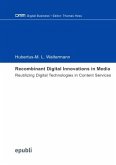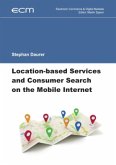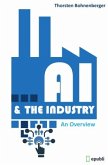The diffusion of digital technologies, like cloud computing or artificial intelligence, across individuals and society has lifted innovation to new grounds and requires organizations to prepare for the emerging "digital innovation regime". However, integrating digital technologies into processes, products, services, and business models does not only provide opportunities to organizations but also poses tremendous challenges. Despite great investments in digital change initiatives, organizations grapple with effectively formulating processes and organizational structures to harness the value of digital innovation. Simultaneously, the new digital reality challenges theoretical assumptions in information systems research, requiring new perspectives. In light of the relevance of digital innovation for organizational survival, it is crucial to investigate how to manage innovation activities in the digital age.This dissertation explores the complex sociotechnical phenomenon of digital innovation management on three levels of investigation: the individual, the group, and the organizational level. Anchored in information systems and management research, the four empirical studies take qualitative and quantitative methodological approaches. Results provide a structuring scheme for digital innovation and identify the effects of information systems use on individuals' innovation behavior. For integrating digital innovation units and their outputs into established organizational functioning, this work outlines aligning activities and proposes a reintegration model for digital innovations originating from these newly set up units. Overall, this dissertation provides a nuanced understanding of innovation in the digital age and corresponding recommendations on managing digital innovation activities.
Bitte wählen Sie Ihr Anliegen aus.
Rechnungen
Retourenschein anfordern
Bestellstatus
Storno








